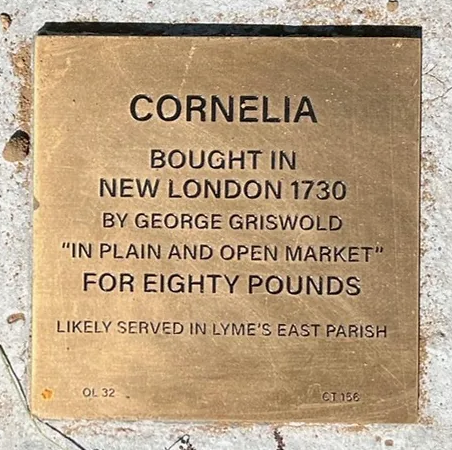
Cornelia’s life in Lyme is known only from her bill of sale. On July 10, 1730, George Griswold (1692-1761) purchased from Joseph Coit (1698-1787) for eighty pounds, “in plain and open market in New London,” a negro woman “called or known by the name of Cornelia.” The document recording her purchase, preserved in the archives of the Connecticut State Library, granted Griswold and his heirs the “use, benefit and behoof” of Cornelia for her natural life. Sometime after her purchase, Cornelia likely labored in a household at Giant’s Neck, a few miles east of Black Hall in Lyme’s second, or east, parish, where Rev. George Griswold served as the first minister.
While Cornelia’s origins have not been documented, other persons enslaved by Joseph Coit, a New London shipmaster and merchant, could have been her family members. They include an unnamed Negro man who died in 1725, a Negro man who died in 1733, a Negro woman named Sylvia and her daughter Cloea whom Coit sold in 1743, and a Negro manservant Peter who died in 1750 at age 50. After moving from New London to Norwich, Coit in 1785, two years before his death, freed his “mulatto man” Bristol Barney, but two other enslaved servants, Violet and Eunice “remained long in the family.”